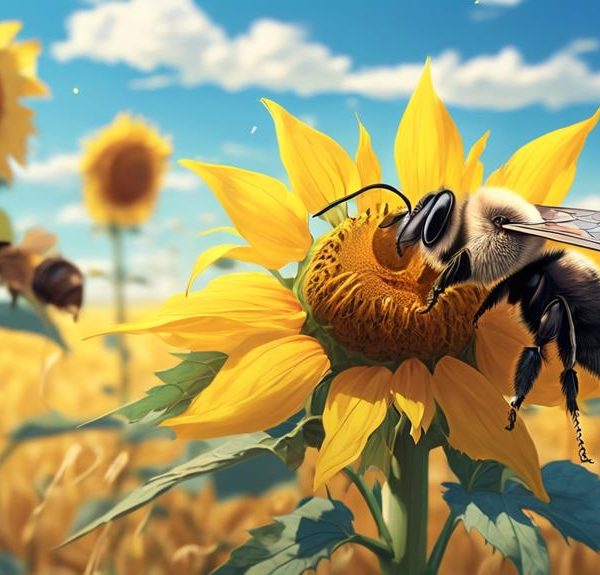An intriguing exploration of Mason bees' presence in Illinois, revealing the crucial role they play in the state's diverse ecosystem.
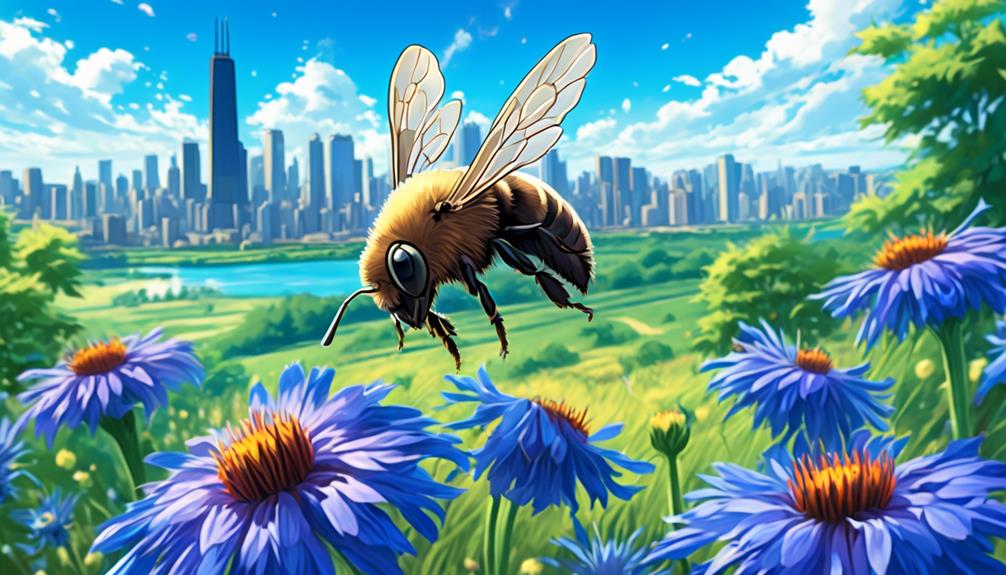
Are There Mason Bees in Illinois?
Did you know that there are over 140 species of bees in Illinois alone? Among those buzzing inhabitants, you're more than likely to come across the industrious Mason bee.
Unlike honeybees, they're solitary creatures and they've got a knack for pollination that's simply unmatched.
Now, you might be curious, do these hardworking pollinators call the Prairie State their home? Let's explore this further and unravel the mystery surrounding the presence of Mason bees in Illinois.
Key Takeaways
- Mason bees are solitary creatures that build their own nests.
- They are highly efficient pollinators, with one mason bee being equivalent to 100 honeybees in terms of pollination.
- Mason bees require mud to seal their nests and a diverse selection of native flowering plants for nectar and pollen.
- Mason bees in Illinois play a crucial role in pollinating wildflowers and crops, but their populations are threatened by habitat loss and pesticides.
Understanding Mason Bees
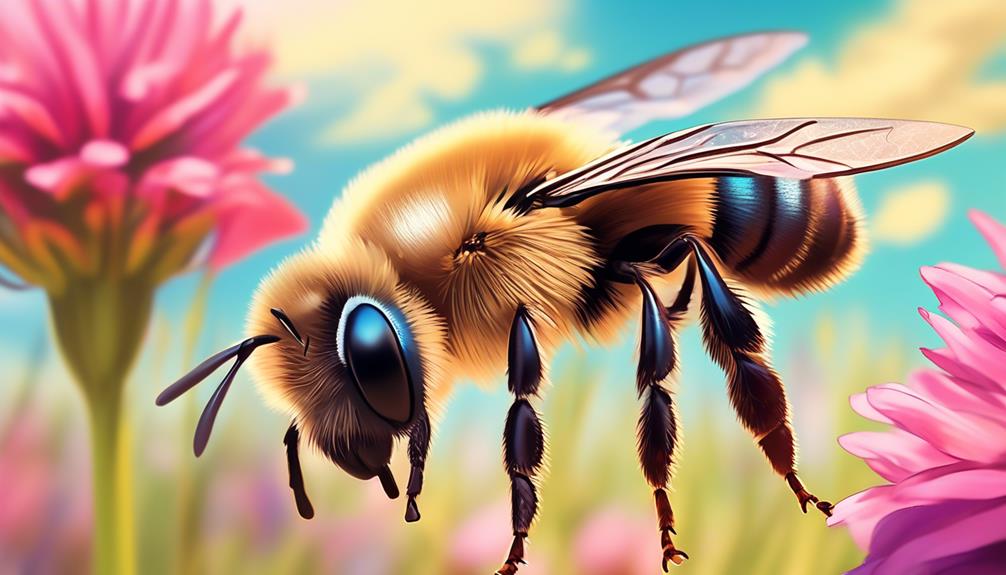
To truly appreciate the role of Mason Bees in Illinois ecosystems, it's essential to understand their unique behaviors, lifecycle, and habitat requirements. Unlike honeybees, they're solitary creatures and don't live in colonies. Each female mason bee is fertile and builds her own nest, often in hollow reeds or holes drilled in wood.
Their lifecycle is fascinating. They begin as eggs, laid by the female in her nest. She then gathers pollen and nectar to create a food source for the larvae. Once the eggs hatch, the larvae feed on this food stash, grow, and pupate over the winter, emerging as adults in the spring.
Habitat requirements for mason bees are quite specific. They need a readily available source of mud to seal their nests, as their name implies. Additionally, they require a diverse selection of native flowering plants for nectar and pollen.
Understanding these factors, you can see how Mason Bees are integral to Illinois's ecosystems. They're highly efficient pollinators, often more so than honeybees. Their presence is a strong indicator of a healthy environment, making them a vital component of biodiversity.
Mason Bees Vs. Honeybees
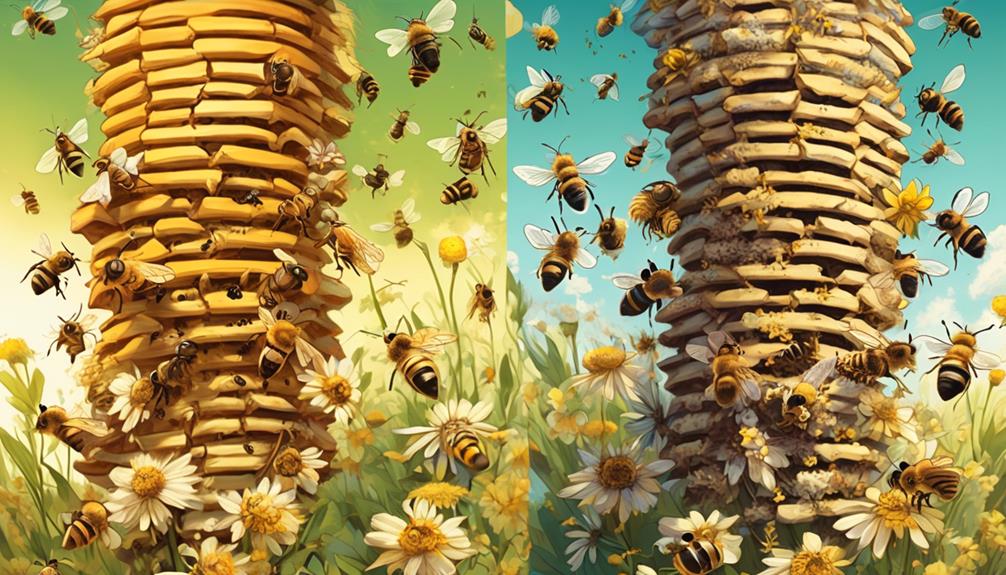
While the unique characteristics and habits of Mason Bees have been explored, it's equally important to compare and contrast them with Honeybees to fully grasp their role and efficacy in Illinois's ecosystems.
Mason Bees are solitary creatures, each female building her own nest, unlike Honeybees, which live in large colonies with a single queen. Furthermore, Mason Bees are more efficient pollinators; one Mason Bee can do the work of 100 Honeybees.
While Honeybees collect nectar to make honey, Mason Bees only gather pollen and nectar for their offspring. You'll also note that Mason Bees don't have a barbed stinger, making them less defensive and far less likely to sting than Honeybees.
However, they're not honey producers, which puts them at a disadvantage when it comes to commercial benefits. Mason Bees are more prevalent in Illinois than Honeybees, but due to their solitary nature, they're often overlooked.
In terms of conservation, both bee types are vital. Honeybees are essential for honey production and large scale pollination, while Mason Bees play a crucial role in local ecosystems, helping to maintain biodiversity. Both are affected by habitat loss and pesticides, making their protection a necessity in Illinois.
Habitats of Mason Bees
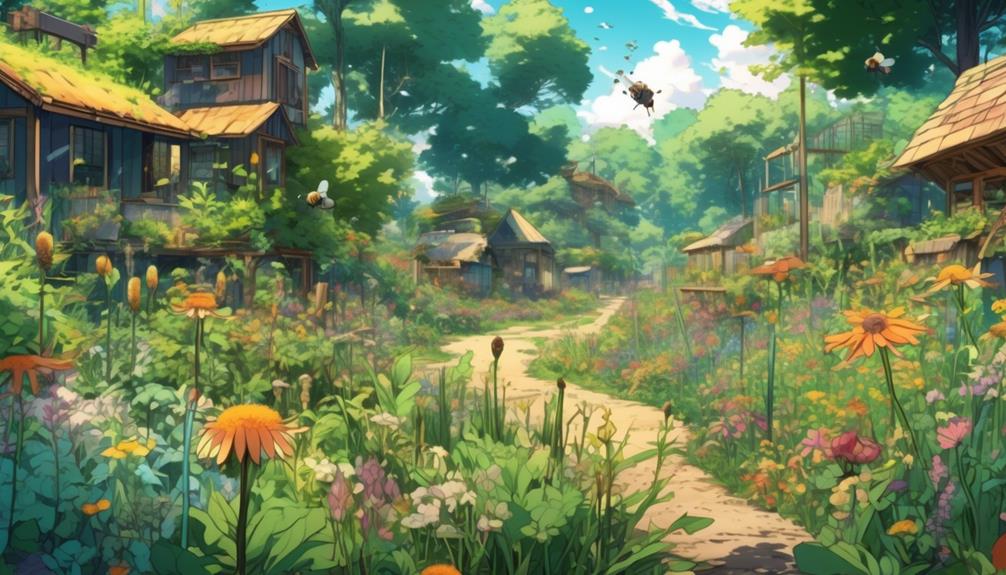
Understanding the habitats of Mason Bees in Illinois is crucial, as they prefer to nest in pre-existing holes or crevices, often within wooden blocks, hollow stems, or even in the ground, shaping their environment to suit their particular needs. They aren't picky about their homes, making them versatile pollinators that can adapt to a variety of environments.
Habitat Type | Description | Importance |
|---|---|---|
Wooden Blocks | Mason Bees often nest in pre-made holes in wooden blocks. | These provide a safe, enclosed space for them to lay their eggs and protect them. |
Hollow Stems | They can also be found in hollow stems of plants. | This gives them easy access to food sources. |
Ground | Some species prefer to nest in the ground. | The soil offers protection from predators and weather conditions. |
You'll often find Mason Bees in your garden if it's rich in flowering plants, providing them with ample food. They're solitary bees, meaning each female finds her own nesting site. Understanding their habitat preferences helps in creating conducive environments for them, ultimately aiding in their conservation. Providing appropriate resources for these pollinators in our backyards promotes their population growth, benefiting our ecosystem.
Mason Bees in Illinois
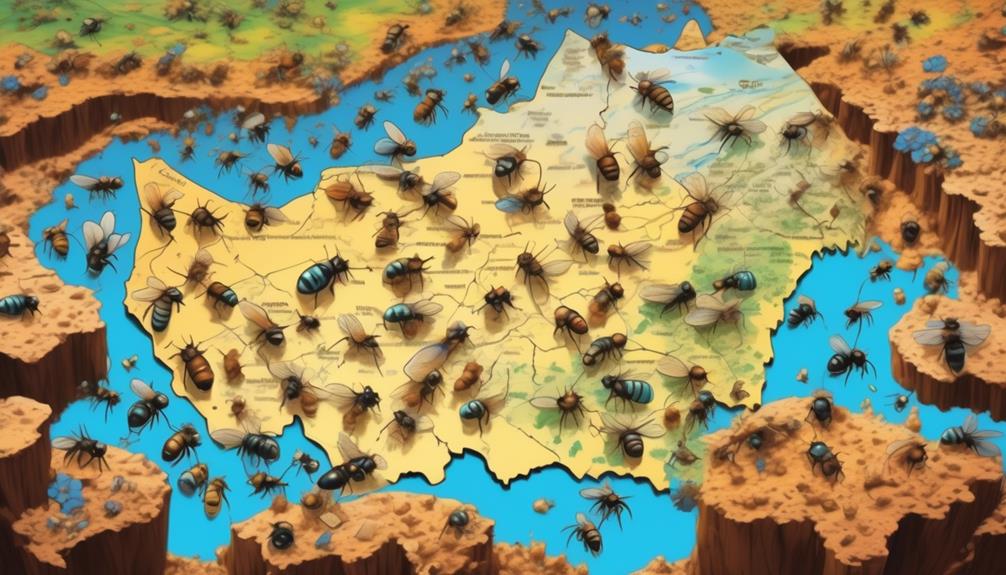
Building on what we know about the habitats of these industrious insects, let's now focus on the unique behaviors, adaptations, and roles of Mason Bees specifically found in Illinois.
These bees are solitary and don't live in hives like their honeybee counterparts. They're known for their efficient pollination skills and are vital to the local ecosystem.
Adaptations for Illinois's climate include their early spring emergence, coinciding with the blooming of early fruit trees. They've evolved a hardy nature to withstand the fluctuating temperatures of the Midwest. Unlike other bees, Mason Bees use mud to build nests, hence their name. You'll find them in hollow stems or man-made bee houses.
These bees play an essential role in pollinating wildflowers and crops in Illinois. They're quite docile and rarely sting, making them safe neighbors for your garden. However, their populations are threatened by habitat loss and pesticides. It's crucial to encourage their propagation by growing native plants and reducing pesticide usage.
In a nutshell, Mason Bees are an integral part of Illinois's biodiversity and agricultural systems. Understanding their behaviors and the challenges they face is key to their conservation.
Importance of Mason Bees in Ecosystems
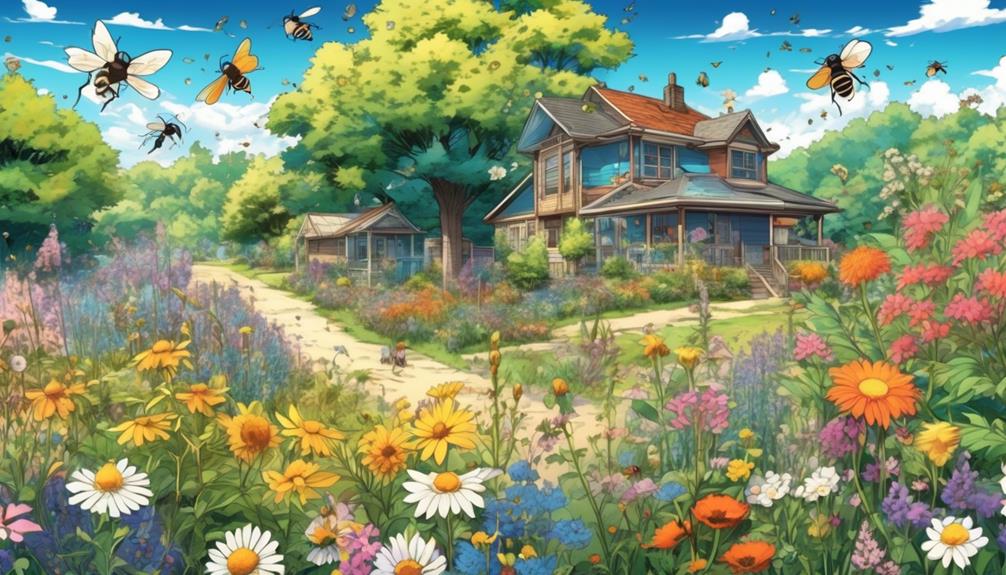
Undeniably, Mason Bees hold a significant place in our ecosystems, delivering unmatched pollination services that contribute to both biodiversity and agricultural productivity. As a solitary species, each female is fertile and builds her own nest. She doesn't produce honey, but her superior pollination abilities outweigh this.
Consider this: A single Mason Bee can pollinate what would take 100 honeybees. This efficiency is due to their unique 'belly-flopping' method where they gather and distribute pollen on their abdomen, ensuring a higher transfer rate than other bees.
Your gardens and farms greatly benefit from their presence. They boost crop yields and improve the quality of fruits and vegetables. Mason Bees are also vital in maintaining the health of flowering plants. By transferring pollen, they enable plants to reproduce, creating seeds that grow into new plants.
However, their numbers are dwindling due to habitat loss. It's crucial to provide them with suitable nesting sites to encourage their proliferation.
Conclusion
Yes, you'll find Mason bees in Illinois. These solitary, non-aggressive bees are crucial pollinators, aiding in the growth and reproduction of plants. Unlike honeybees, they nest in small crevices, making them more common in urban settings.
Their presence in Illinois is a boon for the ecosystem, emphasizing the importance of conserving such beneficial insects. Every garden and open space in Illinois can potentially benefit from the diligent work of these little pollinators.


